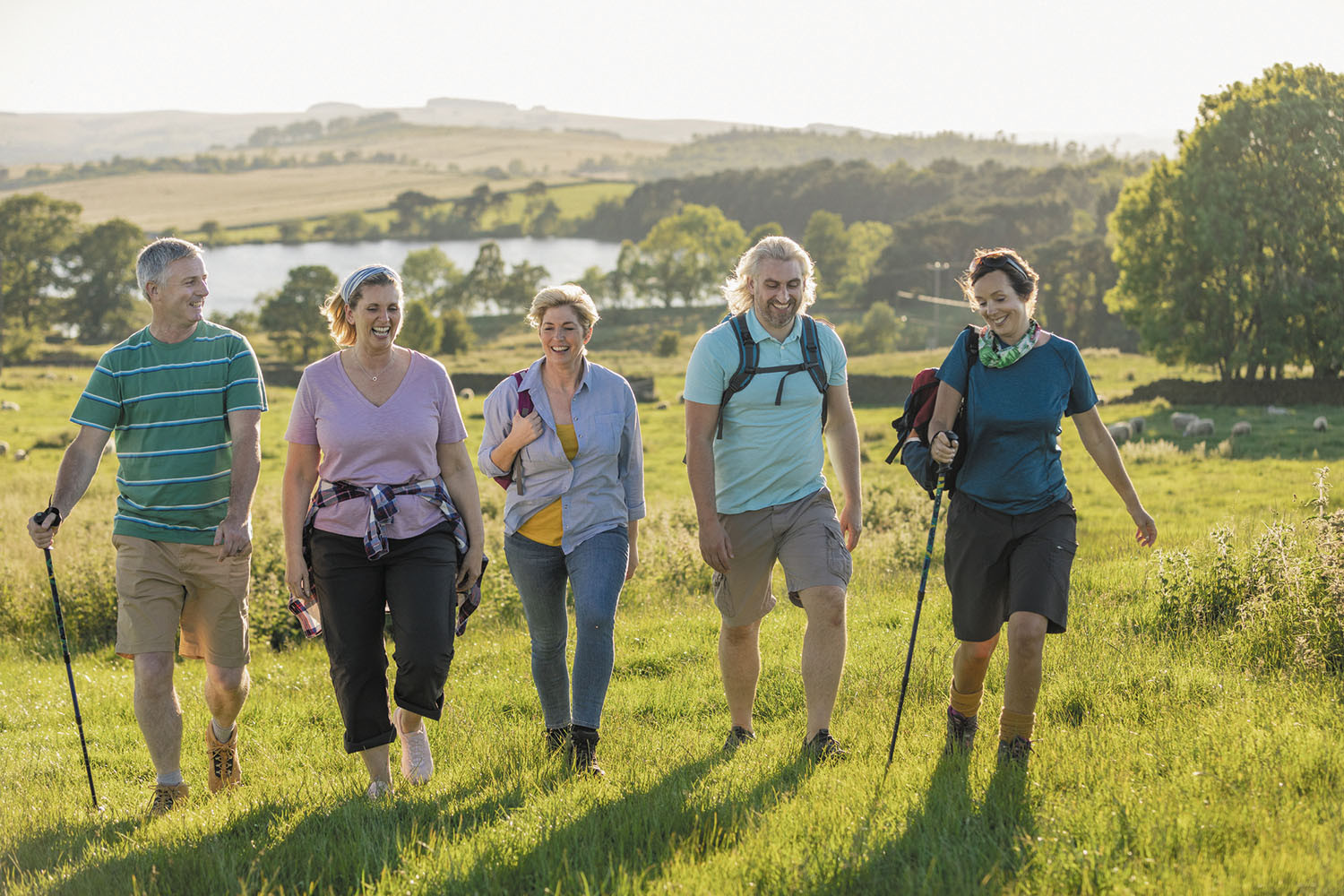
5 timeless habits for better health

What are the symptoms of prostate cancer?

Is your breakfast cereal healthy?

When pain signals an emergency: Symptoms you should never ignore

Does exercise give you energy?

Acupuncture for pain relief: How it works and what to expect

How to avoid jet lag: Tips for staying alert when you travel

Biofeedback therapy: How it works and how it can help relieve pain

Best vitamins and minerals for energy

Should you take probiotics with antibiotics?
Balance Archive
Articles
Reduce your fear of falling
The fear of falling can lead to a heightened sense of caution and less physical activity—which can actually increase the risk of falling. To reduce the fear of falling, a person must address underlying conditions, such as poor eyesight or joint problems. It also helps to work with a physical therapist to improve balance, gait (walking pattern), muscle strength, flexibility, and range of motion. When physical therapy ends, one must continue doing strength, stretching, and balance exercises at home in order to keep fear at bay and reduce fall risk.
Hike your way to better health
Hiking is similar to walking but can be more challenging and can provide a nice change of pace. Walking over uneven terrain typically burns more calories than a walk on a flat surface. It also builds muscle strength and improves balance. A wilderness walk also brings mental health benefits. Choosing a path to a scenic destination may motivate people to go farther and climb higher and increase fitness gains.
Dealing with dizziness
Many people experience dizziness, or a feeling of being woozy or lightheaded, from time to time. In most instances it's triggered by a minor underlying problem, such as dehydration, a medication, or blood pressure fluctuations. Only rarely is dizziness caused by something more serious, such as a heart rhythm disturbance or stroke. However, even if dizziness isn't caused by something serious, it can lead to a dangerous fall, so it's important to prevent these episodes when possible. People should get emergency help for dizziness that is long-lasting, severe, or accompanied by other symptoms, such as difficulty walking or numbness.
Two common shoulder injuries and how to avoid them
Two categories of shoulder injuries are particularly common among older adults: rotator cuff injuries and shoulder bone fractures. The key to warding off shoulder injuries is to keep the joints healthy, strong, and flexible. Many of the strategies to do this are the same ones that will reduce fall or fracture risk. Examples include weight-bearing activity, stretching, improving balance, and eating a healthy diet. Other strategies include strengthening the shoulder muscles, stretching the shoulders right before activity that requires shoulder power, and removing fall hazards from the home.
Watch out for these balance busters
Many factors can impair balance and lead to falls, such as vision, hearing, or joint problems; medication side effects; and environmental hazards. To improve balance and reduce the risk for falls, one can remove fall hazards from the home, treat underlying conditions that increase fall risk, consider adjusting medications that affect balance, get physical therapy, use an assistive walking device, wear supportive shoes that hold the feet in place, and frequently challenge balance with balance exercises.
How to stay strong and coordinated as you age
Many physical abilities decline with age, along with changes that occur in coordinating the movements of the body. One of the most significant causes of this decline is reduced physical activity. In fact, as people age it becomes even more important to exercise regularly, and regular activity can help improve strength and coordination.
Master the stairs
Fitness with a function

5 timeless habits for better health

What are the symptoms of prostate cancer?

Is your breakfast cereal healthy?

When pain signals an emergency: Symptoms you should never ignore

Does exercise give you energy?

Acupuncture for pain relief: How it works and what to expect

How to avoid jet lag: Tips for staying alert when you travel

Biofeedback therapy: How it works and how it can help relieve pain

Best vitamins and minerals for energy

Should you take probiotics with antibiotics?
Free Healthbeat Signup
Get the latest in health news delivered to your inbox!
Sign Up











